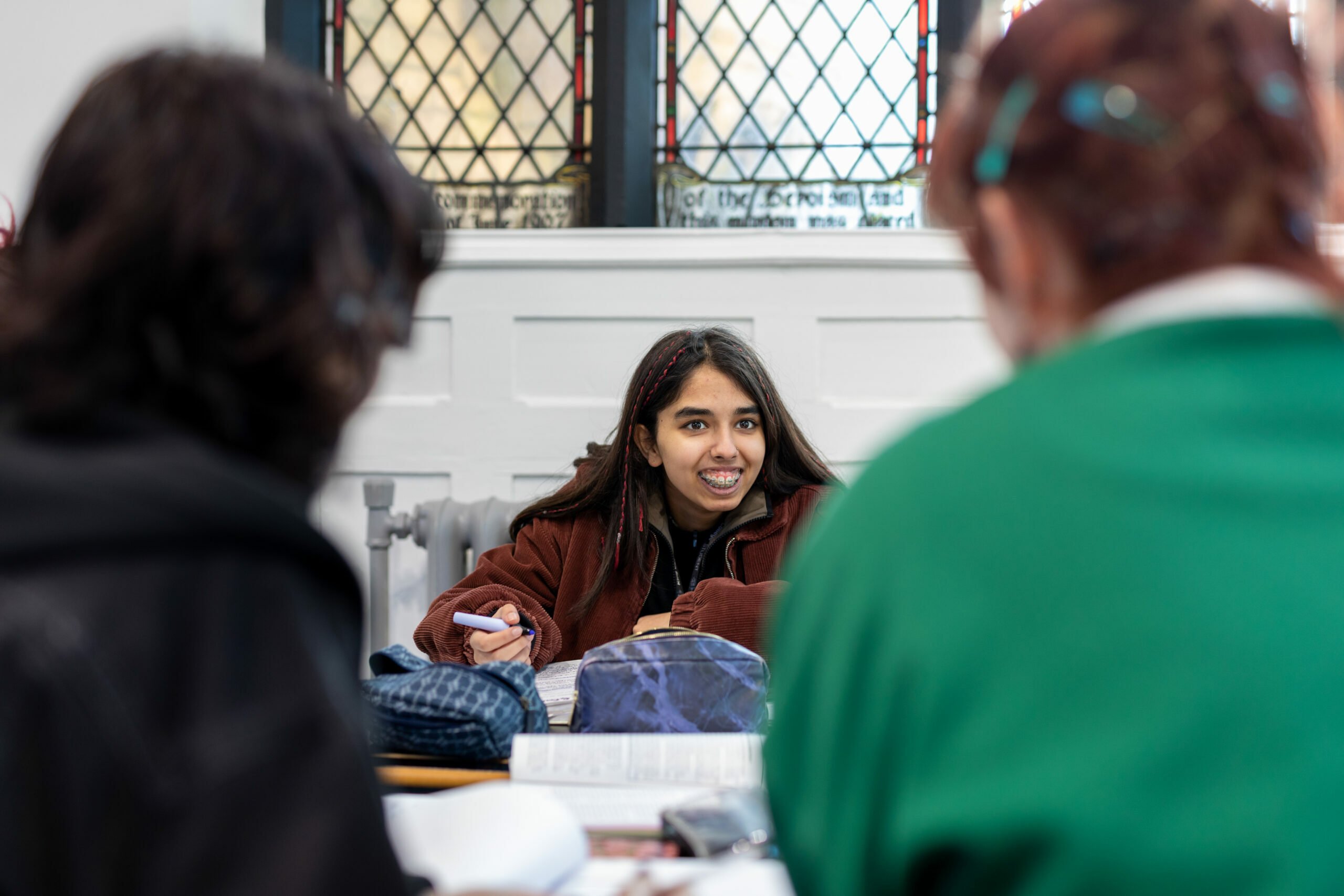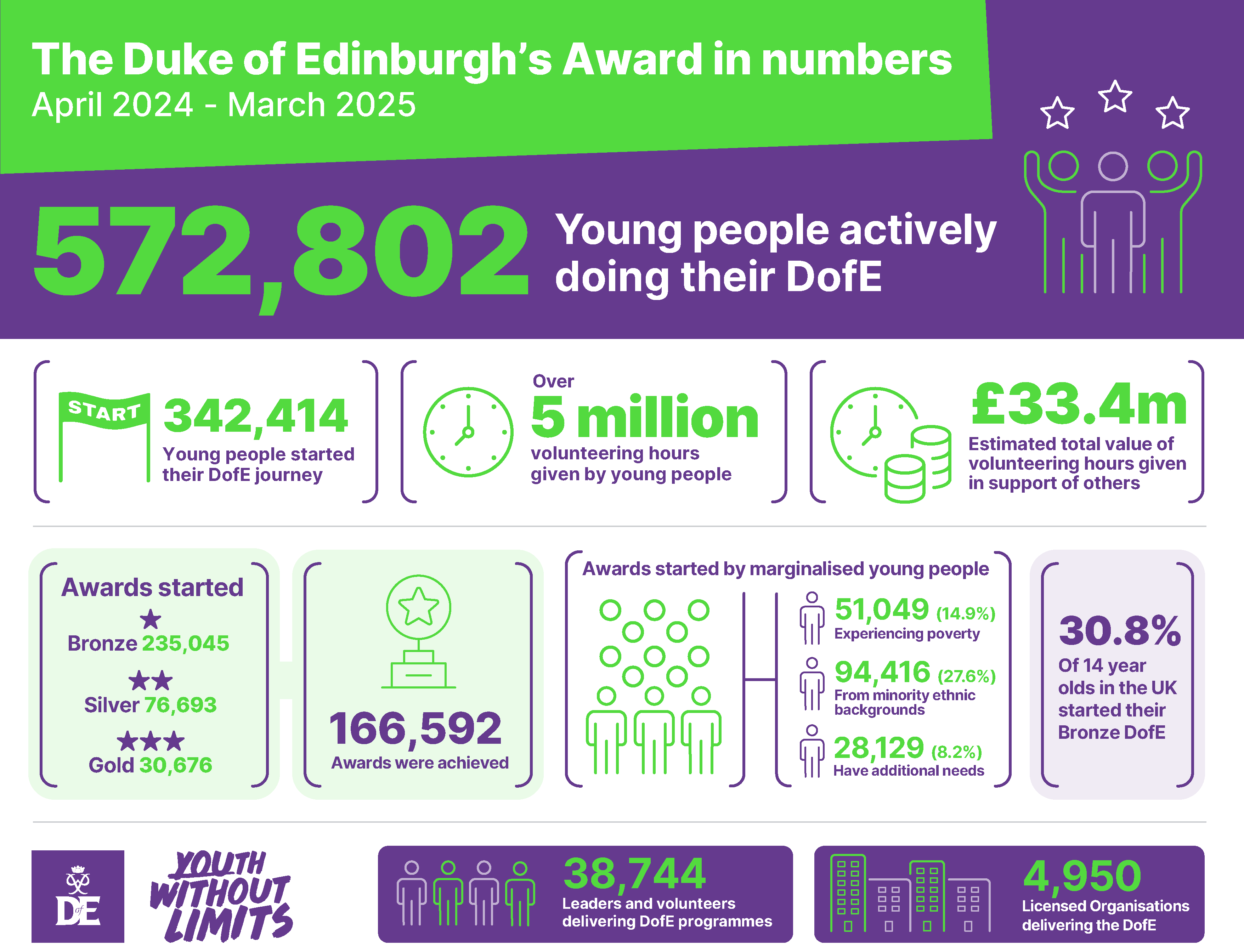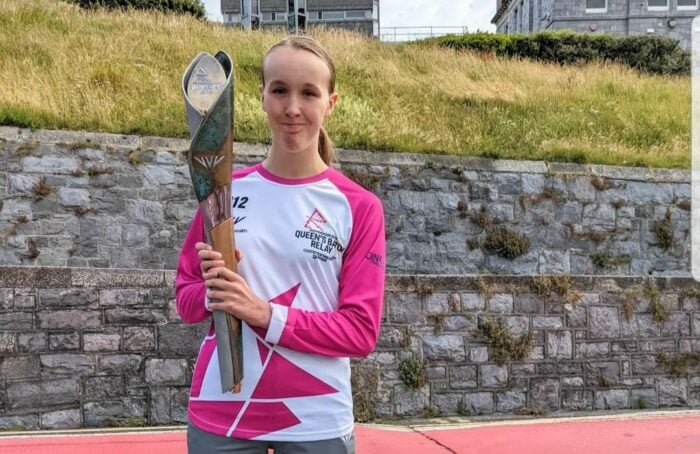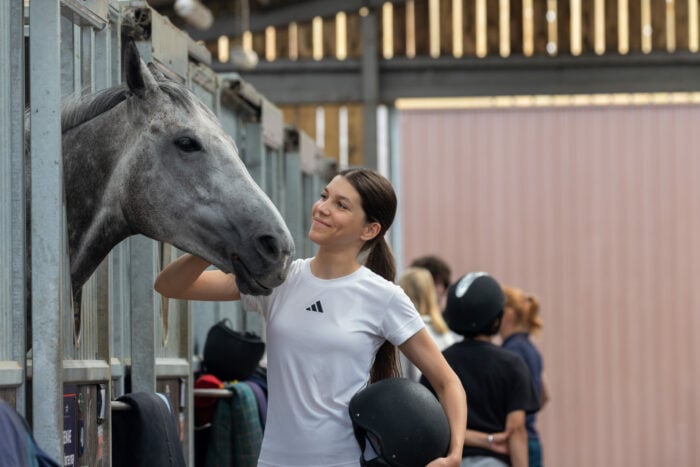A record number of young people started their Duke of Edinburgh’s Award in 2024-25 – as we continue our work to widen access and remove barriers to participation.
Our annual statistics reveal that more than 342,000 young people across the UK started their DofE last year. Participants gave a staggering 5.2 million hours of volunteering as part of their DofE activities, the first time the charity has reached 5 million volunteering hours and a huge jump of 10.6% on 2023-24.
The figures show that a record 572,802 young people took part in a DofE programme in 2024-25 – the highest in the charity’s almost 70-year history.
The annual statistics show that:
- 30.8% of 14 year olds across the UK started their Bronze DofE. Overall, 8.5% of 14-18 year olds across the UK started a DofE programme in 2024-25
- The total number of Awards achieved increased by 7% to 166,592
- The number of young people starting their Gold DofE jumped by 7.5% – the highest percentage increase in participation of the three DofE levels
- The proportion of young people starting a DofE programme who have additional needs now stands at 8.2%, rising from 4.8% in 2021-22
- 38,744 amazing Leaders and other volunteers supported young people on their DofE journeys, inspiring and motivating them in organisations all over the UK
- The DofE distributed more than £1.4 million in grant funding to support organisations and young people facing financial barriers to participation.
Our work in action
With the help of volunteers, supporters, funders and partners, the DofE has reviewed and updated its programme to make it more flexible and accessible, launched targeted funding to dismantle financial barriers faced by organisations and young people, and partnered with hundreds more schools in deprived areas, community organisations, colleges, centres for young people with additional needs, and prisons and young offender institutions.









